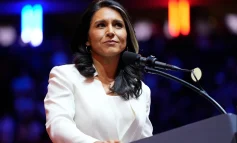The American-Arab Anti-Discrimination Committee (ADC) issued a press release on August 21 calling for the U.S. Department of Treasury to ensure that American Muslim donors can fulfill their obligation to donate to Muslim charities without fear.

The statement echoed President Barack Obama’s call for the government to work with American Muslims to ensure they can fulfill zakat.
Despite those urgings, the ADC realizes there are still potential pitfalls out there and recommended that Muslims perform their due diligence on charities to which they wish to donate. ADC recommended the Web site www.muslimadvocates.org as a place to go for information on giving from Muslim Advocates, a sister entity to the National Association of Muslim Lawyers.
The ADC Legal Department is available to assist in any research and answer questions about charitable giving during Ramadan, and can be reached at 202.244.2990 or via e-mail to legal@adc.org.
More information about charities can also be found by going to Web sites such as www.foundationcenter.org and www.guidestar.org and examining 990 forms for each organization. The ADC added that knowledge of where the charity operates and to whom it provides services is essential.
Donors who give online are also urged to leave a comment stating the intentions of their donation on a charity’s Web site if applicable. An example of such a comment would be to write “donation to a food drive” in such a case. All receipts and correspondences including returned checks should also be kept in an organized manner.
Finally, when donating to a foreign organization, giving to an American-based 501(c) 3 that is involved in philanthropic efforts in foreign countries is advised. The U.S. Agencies for International Development (USAID) has a Web site at www.usaid.com that can provide valuable information.
“Donating to those in need is the right of all Americans,” said ADC National Executive Director Kareem Shora. “Muslim Americans have a religious obligation during the Holy Month of Ramadan and, as President Obama indicated, they should be able to give freely without fear from future prosecution or undue scrutiny by government agencies.”





Leave a Reply